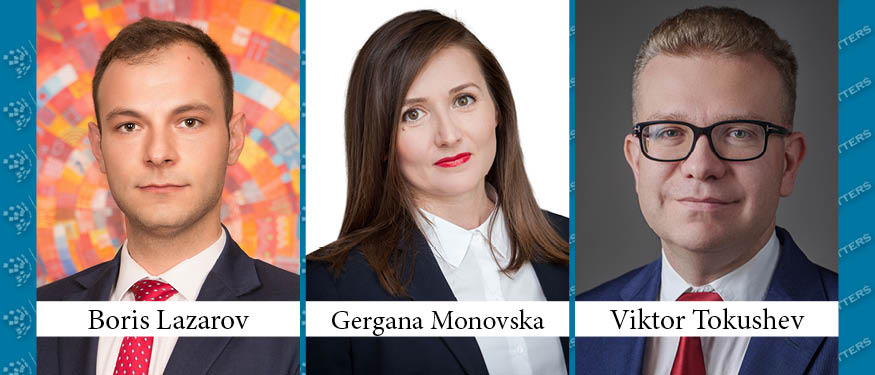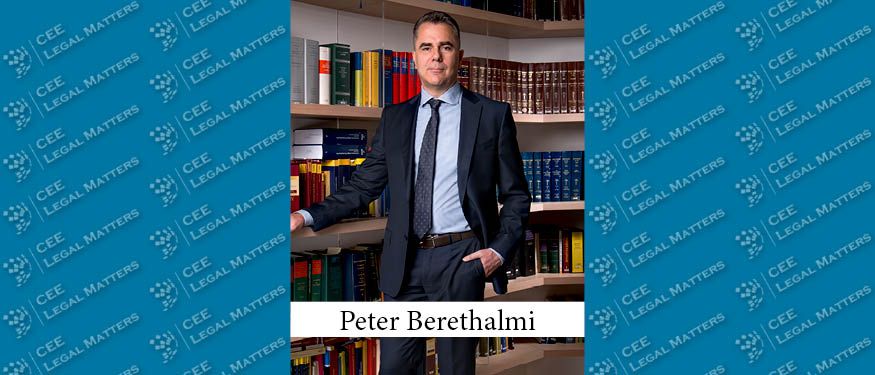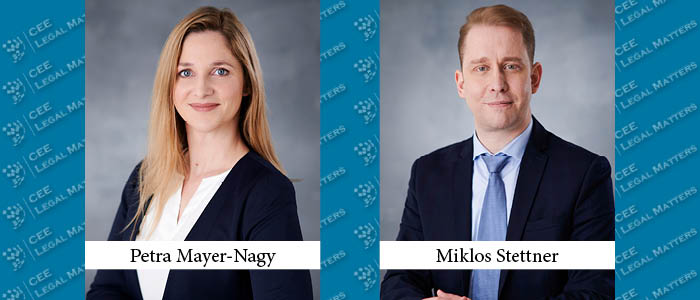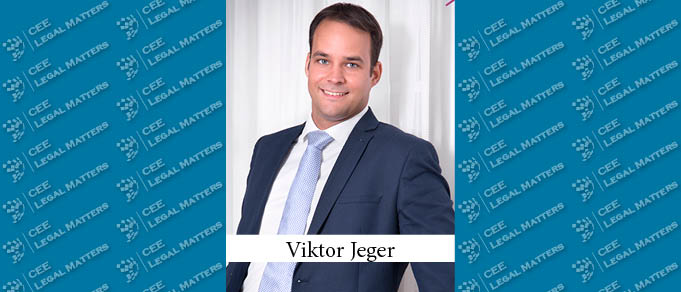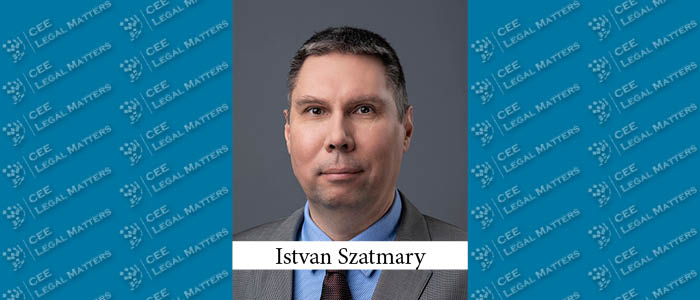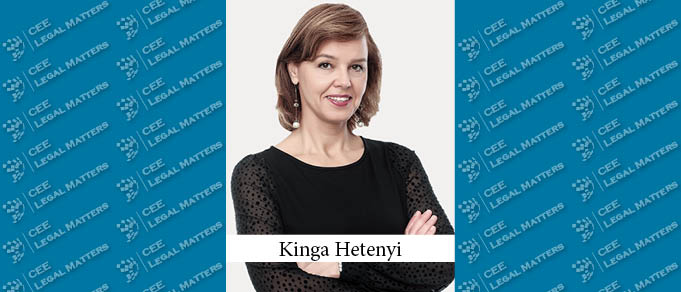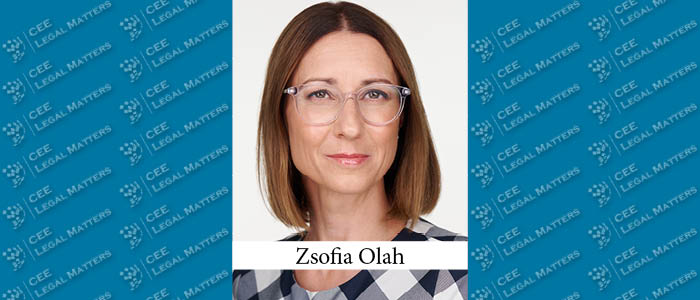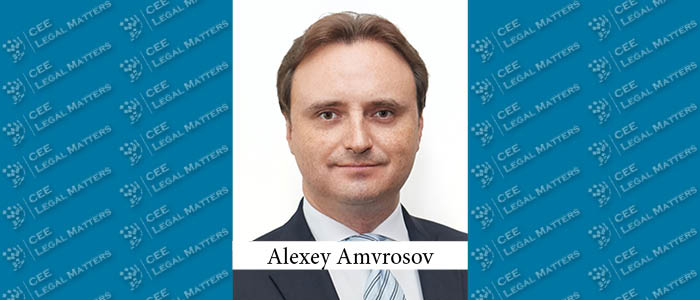For Bulgaria’s capital markets, the past ten years saw several landmark developments, large IPOs, and programs and initiatives tailored for small and medium-sized enterprise needs. Penkov Markov & Partners Associated Partner Boris Lazarov, Djingov Gouginski Kyutchukov & Velichkov Partner Gergana Monovska, and Tokushev and Partners Managing Partner Viktor Tokushev walk us through the highlights.
Know Your Lawyer: Peter Berethalmi of Nagy es Trocsanyi
An in-depth look at Peter Berethalmi of Nagy es Trocsanyi covering his career path, education, and top projects as a lawyer as well as a few insights about his as a manager at work and as a person outside the office.
Huge Consolidation and Important New Legislation Impacting the Hungarian TMT Market
The Hungarian telecoms market saw several major transactions during the past few years, with 2022 and early 2023 witnessing undoubtedly the largest transaction in decades: the acquisition of Vodafone Hungary by 4iG (51%) and state-owned Corvinus Zrt. (49%) for a deal value of approximately EUR 1.7 billion.
Challenges in 2023 on the Office Lease Market in Hungary
Energy crisis, inflation, and the forint exchange rate slide: what impact have these circumstances produced on the office lease market? This article aims to provide an overview of the challenges the office lease market faces in Hungary in such a turbulent period.
Recent Developments in Banking and Finance
In terms of legislation, first, a long-awaited amendment of the insolvency act allows the liquidator to upkeep the debtors’ operation during the liquidation process even if it is at a loss, if it can be assumed that the operation preserves the assets better than shutting off the business would. The liquidator can decide to continue the operation for the first 120 days of the liquidation procedure, but any further extension of this operation period requires the approval of the court.
The Future of Hungary’s Energy Sector Is Taking Shape
The escalation of the war in Ukraine in February 2022 shocked Hungary’s energy sector to such an extent that the Hungarian government declared a state of energy emergency by its resolution dated July 15, 2022. After the first anniversary of the escalation, the smoke has cleared enough to draw conclusions regarding the future based on the reactions of the stakeholders.
Forging Ahead in Competition Law – A Snapshot of the Hungarian Landscape
2022 brought many changes in competition law in Hungary and, as far as we can see, 2023 will not be any different. Here is a short summary of what was on the table in 2022 and what the consequences are.
Positive 2023 Outlook for Hungarian M&A Despite Risk Factors
After a record deal value in 2022, the outlook for M&A in Hungary for 2023 remains positive despite several risk factors. What are they and what could compensate for them? What other factors could have an impact on the current trends?
The Highs and Lows of Renewable Energy in Hungary
The Hungarian renewable energy sector has developed significantly in recent years: the share of electricity from renewable energy sources in gross final electricity consumption was 7.51% in 2017, increasing to 13.9% in 2021. This rapid development was mainly due to the increase in solar power capacity, as the installed capacity of Hungarian solar power plants was around 350 megawatts in 2017, while it exceeded 4000 megawatts in 2022.
Will the New Rules on Abuse of Rights Require Rethinking HR Practices?
Recent changes to the Hungarian Labor Code on the abuse of rights rules are a hot topic among employers, HR professionals, and employment lawyers in Hungary. In this article, we will take a look at what the new rules mean for employers and how they may mitigate the legal risks and financial exposure arising from the amendments.
All Hail the Superbank
In recent years, the major development in Hungary’s banking system is the establishment of the country’s superbank through the merger of Budapest Bank, MKB Bank, and the Takarek Group. DLA Piper Partner Andras Nemescsoi, Forgo Damjanovic & Partners Managing Partner Gabor Damjanovic, and Jalsovszky Law Firm Managing Partner Pal Jalsovszky share insights into the driving forces behind this development, its current status, and its anticipated impact on Hungary’s banking sector.
Budapest’s Blockbuster Business
Hungary has traditionally been the go-to hub for filming in Continental Europe. DLA Piper Partner Monika Horvath and Dentons Partner Timea Bana talk about the evolution of Hungary’s film industry over the past decade and whether the country has maintained its position as the primary European filming destination.
Must-have Soft Skills for the GC of Tomorrow
Alexey Amvrosov, Lead Counsel for IBM Consulting in CEE, based in Vienna, highlights the soft skills that will differentiate successful legal leaders from those less so.
The Corner Office: Workforce Ebb and Flow
In The Corner Office, we ask Managing Partners at law firms across Central and Eastern Europe about their backgrounds, strategies, and responsibilities. Keeping in mind last year’s complexities and the uncertainties ahead, this time we asked: Has your team shrunk or increased in the last 12 months and what are your expectations for 2023?
Editorial: Dear Radus,
Every magazine issue, I inevitably glance over the Letters to the Editors text: an invitation for our readers and contributors to critically engage with us and the articles we publish. Sadly, we get much fewer such letters than I’d like. Still, today I realized that – while they might not start with the customary Dear Editor – we do get a large number of emails that would fit the bill.

